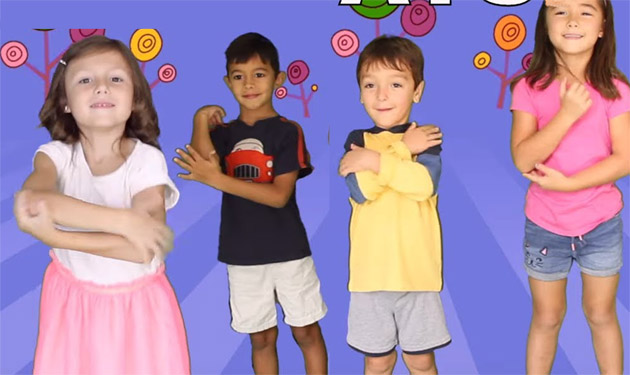Yogesh Khosla
Parents and teachers worldwide see a growing decline in the overall mental health ofchildren and youth. We see a general erosion of healthy and right values. Anger, frustration, violence, loneliness, boredom are as common as common cold. Attention deficit, low EQ intolerance, troubled relationships are growing alarmingly.Many children are reporting symptoms of depression and anxiety. Teachers and parents seem lost and feel unable to help. Adequately qualified and effective counsellors and psychologists are simply not available.
The good news! Lot of exciting new researchis going on to help our children with difficulties. Emphasis today is on developing short, easy, interesting and evidence based interventions which are scalable- can be implemented on a large scale. One such interventionis Behavioural Activation for people with difficulties- especially for depression. Intervention has been modified for children. Many scientific studies by credible researchers and institutions show the efficacy of this intervention. Though psychological principles of the intervention are deep and profound, the basic premise is simple and easy to understand.
We all tend to avoid difficult, unpleasant people and situations and seek pleasure, comfort and safety. If we indulge too much in pleasure seeking activities at the expense of important, healthy activities, trouble is round the corner. For children, Behaviour Activation means-don’t listen too much to your mind.Activities of the mind are mostly misleading. Practice the opposite.Ignore and avoid those unhealthy activities which the mind wants desperately. Take up those healthy activities which we routinely avoid or miss. Seems simple? Try out.
Digital content, apps for smartphones, comic style workbooks are available to learn how to apply this principle. Can be easily understood and used by teachers and parents. We take some examples. Achild fears lizards. She will avoid even the mention or a picture of a lizard. She will have a panic attack if a lizard suddenly appears on the wall. Another example- a child has phobia of public speaking. She is afraid of saying something or answering a question in the class in front of classmates. She hides in a room when guests come.A counsellor slowly and patiently teaches the child (self learning digital content for children will soon be available) how to practice the opposite.Don’t avoid. Don’t run away. Simply face the situation. Counsellor uses empathic concern and shares her own fears and phobias. Child is taught relaxation techniques (deep breathing, progressive muscle relaxation) and then a picture of the lizard is shown from a distance. Then the picture is shown from close quarters. Then a conversion about lizard is taken up after a few days where child learns that lizards are harmless. Then a live lizard is shown from a distance. The child is persuaded to have a close look. See how the lizard moves. See how it fears you. After a week or so the phobia of lizards is gone.
For the child having social phobia- speaking before the whole class, similar process is used. You can’t avoid the unpleasant and uncomfortable situations and people around you. Practice the opposite. First do relaxation techniques. Then practice reading something before the counsellor who is accepting, compassionate and non-judgemental. Then read before two persons including a stranger. Then prepare a presentation for the whole classwith help from trainer/ teacher/ counsellor.Now do itwithout fear.
For children with depression, prescription is similar. What do you routinely do? Lot of screen time (TV, video games, smart phone) or sitting alone avoiding friends and relatives or lying in the bed.Prescription-Practice the opposite. Go for healthy activities- outdoor sports, cycling, athletics, dance, music, drama, reading, writing, meetfriends, help grand parents, clean your cupboard, help parents in household chores. All this in collaboration with an understanding counsellor or teacher or parent who has love, care, acceptance and respect in her heart.
Children with conduct problems routinely fight, argue, abuse, disobey, show disrespect. For them also the same prescription. With help from counsellors, they are taught- Practice the Opposite. Don’t react impulsively. Don’t abuse back. Don’t fight back. STOP.Calm down. Use relaxation techniques. Do problem solving. Consider alternative responses. Select a suitable response and ACT calmly.
Same process is used by adults- with wonderful results. When sad and lonely, get busy with some healthy activities whichhave been neglected.Finish some long pending important work. Set your cupboard, go for a walk,wash utensils, go for a walk, call friends or relatives, help children organize their study table, help children with home assignments, read, write, do yoga. BA has been oversimplified here for advocacy and for general public understanding. For deeper and clearer understanding some references are mentioned hereunder.
Goa’s Sangath in collaboration with London School of Hygiene has implemented Healthy Activities Programme (HAP) and report significant positive impact. Researcher Jessica Schleiderof “Little treatments Big effects” fame has developed digital content for children ABC (Action Brings Change) and other interventions. Interventions and content based on FIRST principles has been developed by John Weiszof Harvard Lab for Youth Mental Health.Inspiration and hard work behind the concept- Dr Vikram Patel Pershing Square Professor of Global Health, Harvard Medical School.
Trending Now
E-Paper


